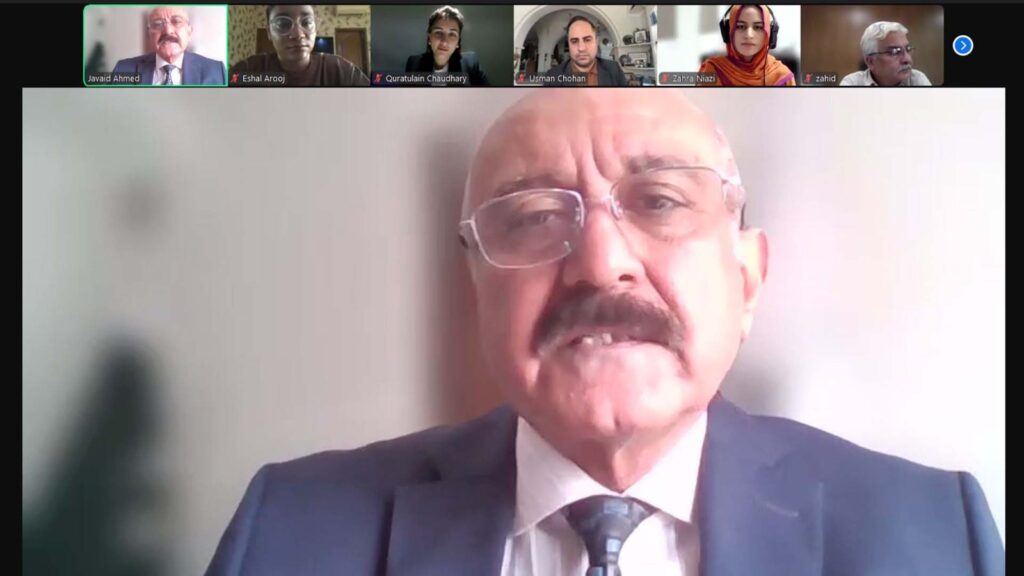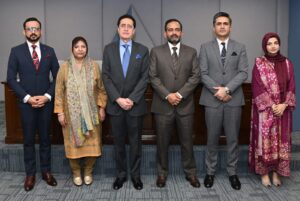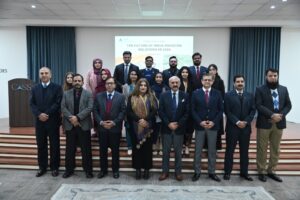CASS Roundtable Highlights Financial Inclusion as Key to Pakistan’s Economic Security

Islamabad, The Gulf Observer: The Centre for Aerospace & Security Studies (CASS), Islamabad, organised a webinar titled “Financial Inclusion for Economic Security” on 15 October 2025. The event brought together experts to explore how inclusive financial systems can strengthen Pakistan’s economic resilience, social stability, and national development.
Dr Usman W. Chohan, Advisor on Economic Affairs and National Development at CASS, emphasized the economic pillar in Pakistan’s National Security Policy, and offered his thesis that national security is premised on robust and widespread financial inclusion. His core argument was that the people of Pakistan must build a participatory and emancipatory economy, in line with the vision of the Quaid, so that they have a direct and lasting stake in their nation’s development. This would, in turn, create the material basis for national security in which every citizen would rally to the defense of the nation. He concluded that financial inclusion would make citizens into active stakeholders in the nation’s prosperity, thus reinforcing both economic and social security.
Ms Quratulain Chaudhry, Executive Manager at Mobilink Microfinance, emphasized that financial literacy is vital for inclusion and national resilience, as an informed polity is a strong polity. She noted that financial inclusion is also contingent on financial retention, which in turn requires a multidimensional enabling ecosystem that linked finance with other important household needs such as healthcare and education. She gave instances of effective design thinking that catered to public needs, including an emphasis on women, who constitute the nation’s demographic majority and yet do not wield sufficient financial decision-making power. Highlighting the interconnection between national economic sectors, she also observed a steady advancement of progressive thought among the masses and the newer generations’ receptivity towards positive change. Ms Chaudhry stressed the need for gender-segregated data, women’s digital ownership, and stronger collaboration across sectors to achieve meaningful and sustainable financial inclusion in Pakistan.
Ms Eshal Urooj, Research Associate at the Punjab Social Protection Authority, noted that while access to formal financial systems in Pakistan has improved, retention rates are more important as there is an attrition risk after formal financial inscription. She cautioned that formality alone does not ensure safety, with the widespread prevalence of scams and fraudulent activity would invariably pose an acute risk to the general public. Emphasising a preventive rather than reactive approach, she highlighted the importance of grievance redressal and financial literacy to build trust. Ms Urooj accordingly recommended five policy priorities: greater interoperability among systems, stronger data protection, gender-responsive measures, a regulatory sandbox to balance innovation and oversight, and policy coherence across ministries for sustainable financial inclusion.
In his concluding remarks, President CASS Air Marshal Javaid Ahmed (Retd), underscored the contention that financial inclusion is an essential pillar of economic security. He urged for coordinated national efforts to create a financially inclusive Pakistan where every citizen is empowered to contribute to, and benefit from, a lasting and shared prosperity.


